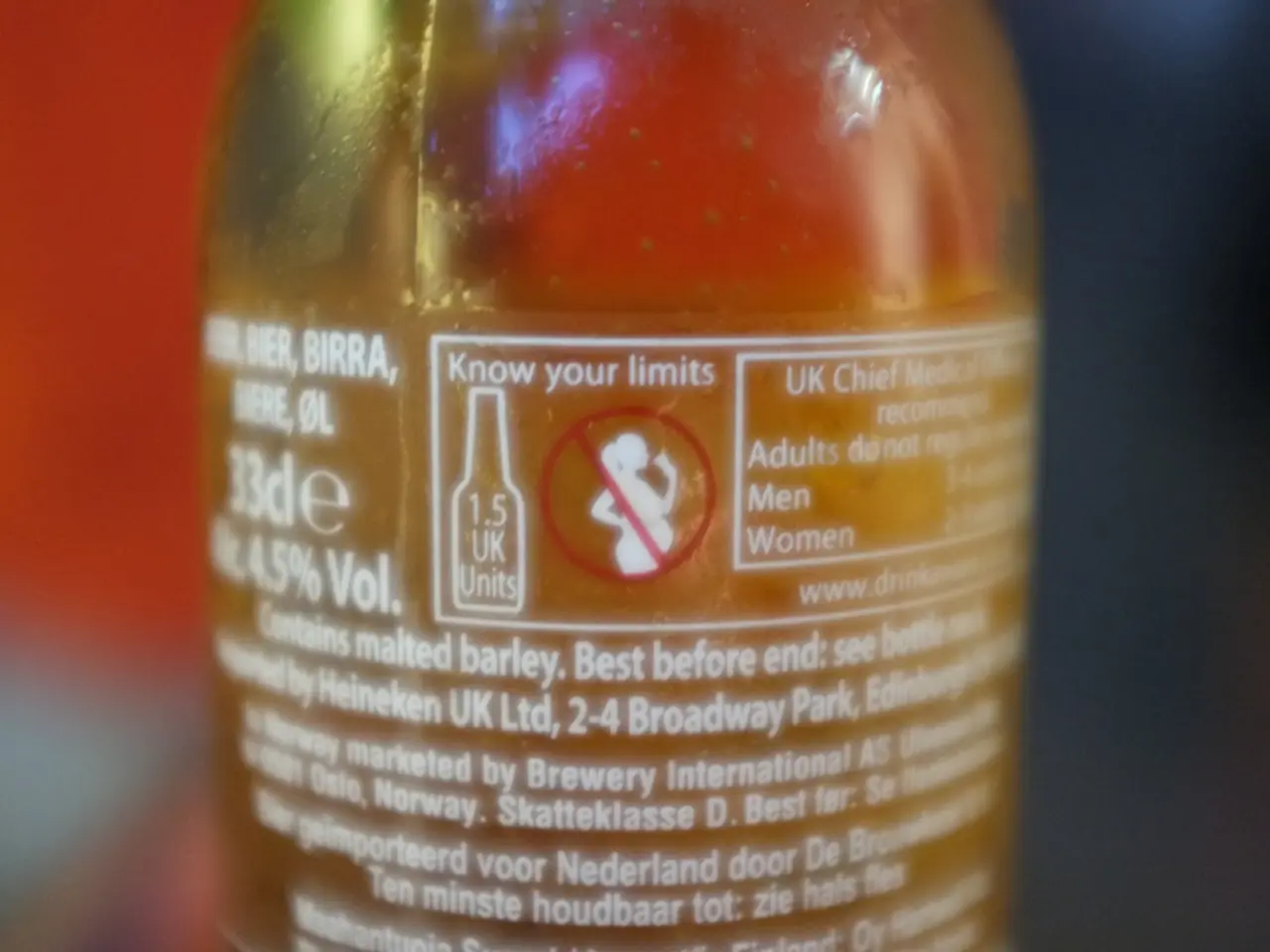TikTok users issue alerts concerning the herbal drink 'Feel Free'
In the realm of herbal beverages, "Feel Free," a small, blue-bottled drink claiming to offer relaxation, productivity, and focus, has come under intense scrutiny. Containing kava root and kratom, this seemingly innocuous drink is now a subject of concern for health authorities and legal experts alike.
Kratom, a plant native to Southeast Asia, is known for its stimulant and opioid-like effects. The Food and Drug Administration (FDA) declared kratom to be an opioid in 2018, and has since taken steps to crack down on products related to it. Despite not being federally regulated, the use of kratom carries significant health risks and addictive properties.
The primary concern lies with the interaction of kratom on opioid receptors in the brain, leading to chemical addiction characterized by tolerance, physical dependence, and withdrawal symptoms such as anxiety, irritability, nausea, and insomnia. Users often report increasing consumption to avoid negative symptoms, indicating a pattern of dependency similar to traditional substance use disorders.
Beyond addiction, kratom use has been linked to serious health risks including liver damage, seizures, hallucinations, high blood pressure, slow breathing, and in severe cases, fatal overdoses. The U.S. FDA has issued multiple warnings about kratom's potential for causing addiction, liver toxicity, seizures, and substance use disorder (SUD).
The combination of kratom with kava, another plant-based ingredient in "Feel Free," further complicates the safety profile of this herbal beverage. Kava itself may cause liver damage with long-term use or when mixed with other substances.
Legal experts have noted rising cases of kratom-related injury, addiction, and death linked to such products, fueling ongoing litigation and public health concern. In Utah, for instance, the sale of "Feel Free" products has been banned due to concerns about their potential harm to consumers.
One such story is that of John, a 35-year-old man from Columbia, South Carolina. John shared videos on TikTok about his struggle with Feel Free addiction after trying the drink in early 2024. His addiction led him to lose his job, spend around $30,000, and resort to stealing to fuel his addiction. John's withdrawal was so severe that he was hospitalized and later developed pneumonia.
Dr. Robert Levy, an addiction medicine expert, has expressed concern about kratom, stating that he has seen and treated kratom addiction. He warns that a recovering addict's brain can heal but never fully returns back to normal, and a small bit of irritation, like a Feel Free drink, can trigger addiction to come back.
In the context of "Feel Free," the drink’s legal availability in stores may mislead consumers about its safety and addictive potential, particularly among teens and young adults. The FDA is currently focused on synthetic, highly concentrated forms of 7-OH, not plant-based kratom. However, FDA Commissioner Marty Makary suggests 7-OH should be classified as a Schedule I substance alongside drugs like heroin, ecstasy, and marijuana.
As the debate surrounding "Feel Free" and kratom-containing products continues, it is crucial for consumers to be aware of the potential risks and addictive properties associated with these substances. A group dedicated to quitting Feel Free has over 5,000 followers on Reddit, providing a supportive community for those seeking to break free from addiction.
References:
- National Institute on Drug Abuse (NIDA). (2020, December 17). Kratom (Mitragyna speciosa). Retrieved March 22, 2023, from https://www.drugabuse.gov/publications/drugfacts/kratom
- Food and Drug Administration (FDA). (2022, June 17). FDA warns consumers about kratom-containing products, including those marketed for weight loss, pain relief, and to treat opioid withdrawal symptoms. Retrieved March 22, 2023, from https://www.fda.gov/news-events/press-announcements/fda-warns-consumers-about-kratom-containing-products-including-those-marketed-weight-loss-pain
- National Institutes of Health (NIH). (2019, May 24). Kratom. Retrieved March 22, 2023, from https://medlineplus.gov/druginfo/natural/965.html
- European Monitoring Centre for Drugs and Drug Addiction (EMCDDA). (2022, March 17). Kratom. Retrieved March 22, 2023, from https://www.emcdda.europa.eu/drug-statistics/kratom_en
- Food and Drug Administration (FDA). (2021, December 16). FDA issues final rule to ban kratom-containing products. Retrieved March 22, 2023, from https://www.fda.gov/news-events/press-announcements/fda-issues-final-rule-ban-kratom-containing-products
Read also:
- Chest Pain Caused by Compressed Nerves: A Possibility Explored
- Weight and Plumpness: Exploring Health Consequences and Understandings
- Expectant mother resorts to marijuana for relieving morning sickness; state authorities deem her a child abuser.
- Discovering the Alleged Enhancement Method: Jelqing and Its Claimed Results






